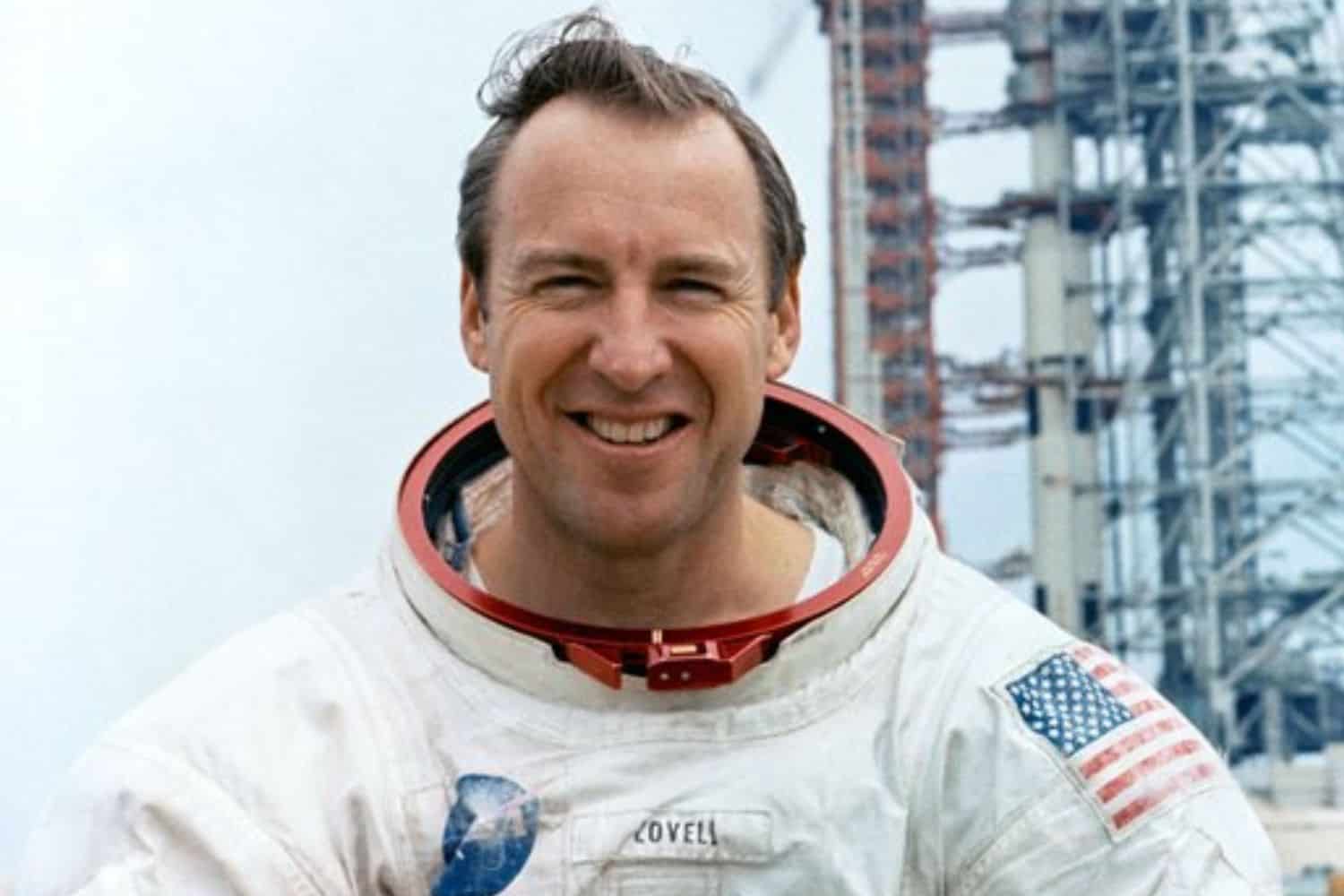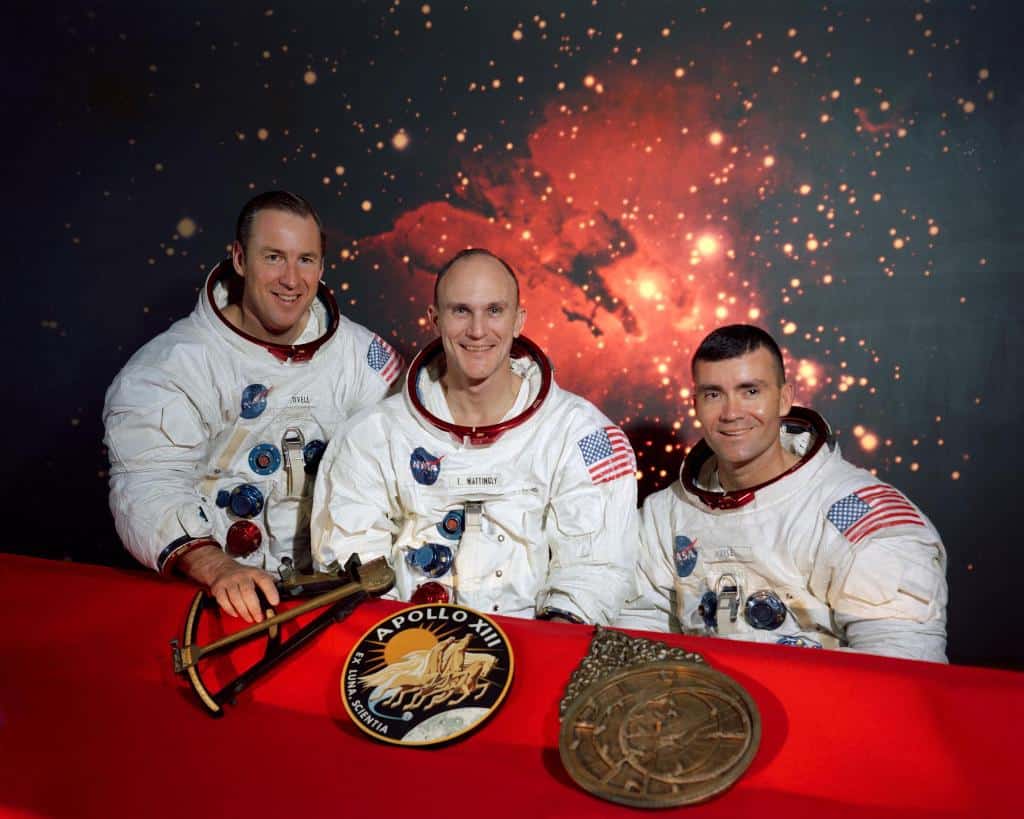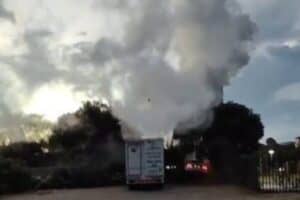Lovell, commander of the failed 1970 mission to the moon which nearly ended in disaster but became an inspirational saga.

US astronaut Jim Lovell, the commander of the Apollo 13 moon mission which nearly ended in disaster in 1970 after a mid-flight explosion, has died at the age of 97.
The National Aeronautics and Space Administration (Nasa) made the announcement on Friday.
Lovell died on 7 August in Lake Forest, Illinois, according to Nasa. The cause of death was not immediately clear.
Saddened
Lovell’s family requested privacy but said they were saddened by this death.
“We are saddened to announce the passing of our beloved father, USN Captain James A ‘Jim’ Lovell, a Navy pilot and officer, astronaut, leader and space explorer,” they said in a statement.
“We are enormously proud of his amazing life and career accomplishments, highlighted by his legendary leadership in pioneering human space flight.”
“But to all of us he was dad, granddad and the leader of our family. Most importantly, he was our hero. We will miss his unshakeable optimism, his sense of humour and the way he made each of us feel we could do the impossible. He was truly one of a kind.”
A statement from the family of Apollo astronaut Jim Lovell on his passing:
— NASA (@NASA) August 8, 2025
"We are saddened to announce the passing of our beloved father, USN Captain James A. "Jim" Lovell, a Navy pilot and officer, astronaut, leader, and space explorer. He was 97.
We are enormously proud of… pic.twitter.com/rz6kbvJ9oa
ALSO READ: WATCH: NASA names astronauts to Next Moon Mission under Artemis
Apollo 13
Lovell, commander of the failed 1970 mission to the moon nearly ended in disaster but became an inspirational saga of survival and the basis for the hit movie Apollo 13.
Hollywood superstar Tom Hanks played Lovell in director Ron Howard’s acclaimed 1995 film. It recounted Nasa’s Apollo 13 mission, which was planned as humankind’s third lunar landing but went horribly wrong when an onboard explosion on the way to the moon put the lives of the three astronauts in grave danger.
Lovell and fellow crew members Jack Swigert and Fred Haise endured frigid, cramped conditions, dehydration and hunger for three-and-a-half days while concocting with Mission Control in Houston ingenious solutions to bring the crippled spacecraft safely back to Earth.

‘Houston, we have a problem’
The mission generally went smoothly for its first two days. But moments after the crew finished a TV broadcast showing how they lived in space, an exposed wire in a command module oxygen tank sparked an explosion that badly damaged the spacecraft 320 000 kilometres from Earth.
The accident not only ruined their chances of landing on the moon but imperiled their lives.
“Suddenly there’s a ‘hiss-bang’. And the spacecraft rocks back and forth,” Lovell said in a 1999 Nasa oral history interview. “The lights come on and jets fire. And I looked at Haise to see if he knew what caused it. He had no idea. Looked at Swigert. He had no idea. And then, of course, things started to happen.” Reuters reported.
Swigert saw a warning light and told Mission Control: “Houston, we’ve had a problem here.” In the movie, the line is instead attributed to Lovell and famously delivered by Hanks, slightly reworded: “Houston, we have a problem.”
Back to earth
With a dangerous loss of power, the three astronauts abandoned the command module and went to the lunar module – designed for two men to land on the moon. They used it as a lifeboat for the harrowing three-and-a-half day return to Earth.
People worldwide were captivated by the events unfolding in space – and got a happy ending. The astronauts altered course to fly a single time around the moon and back to Earth, splashing down in the Pacific Ocean near Samoa on April 17, 1970.
Lovell never got another chance to walk on the moon after Apollo 13, which was his fourth and final space mission.
ALSO READ: Astronauts stranded on ISS for 9 months to return to Earth on Tuesday, says Nasa [VIDEO]
Support Local Journalism
Add The Citizen as a Preferred Source on Google and follow us on Google News to see more of our trusted reporting in Google News and Top Stories.








